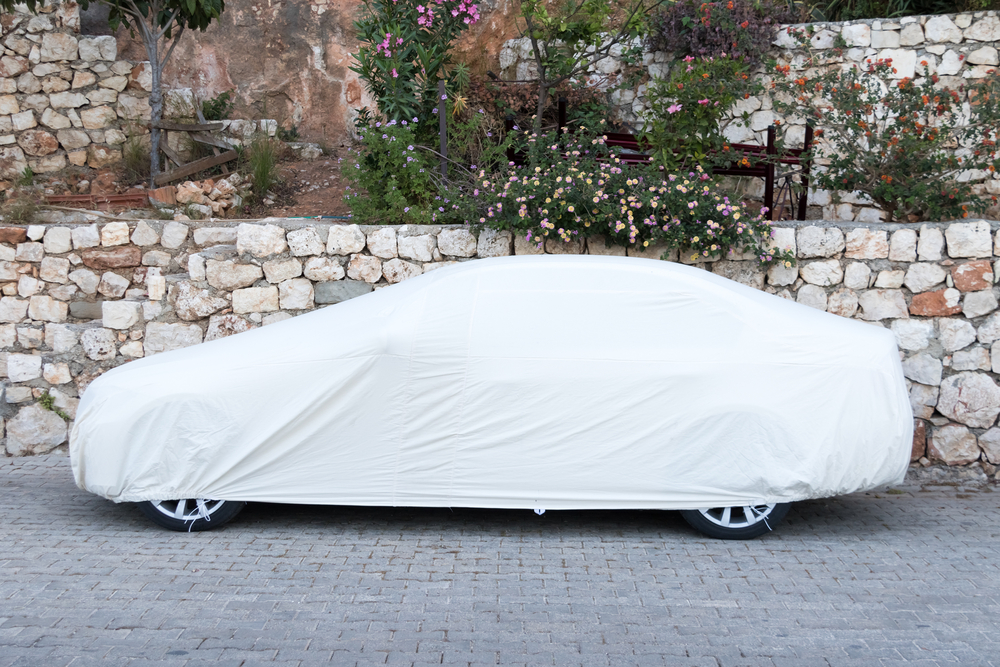Comprehensive Guide to Car Warranty Types and Coverage Options
This comprehensive guide explores the various types of car warranties, including manufacturer and extended plans, their coverage, benefits, and how to choose the best protection for your vehicle. Learn essential tips to safeguard your investment and ensure peace of mind on the road.

Exploring the Different Types of Car Warranties and Their Coverage
Purchasing a new vehicle is a significant investment, and ensuring that your car is protected against unexpected repairs and damages is crucial. One of the most effective ways to safeguard your investment is by understanding the various types of car warranties available in the market today. Car warranties are essential tools that provide consumers with peace of mind, knowing that certain repairs and parts replacements are covered for a specified period or mileage. This comprehensive guide aims to shed light on the different kinds of warranties, their coverage, benefits, and how to choose the right plan for your vehicle.
Typically, new cars come with manufacturer warranties that extend for a set period or miles driven, whichever occurs first. These warranties vary based on the make and model of the vehicle, but generally, newer vehicles tend to come with longer warranty periods compared to older or used cars. The goal of these warranties is to cover defects, repairs, and replacements that happen during the coverage duration, ensuring that owners are protected against unexpected costs.
Most standard warranties are comprehensive, covering critical vehicle systems such as the air conditioning, electrical components, engine, transmission, and other vital parts. The duration of these warranties typically ranges from three to five years or approximately 36,000 to 60,000 miles, depending on the manufacturer. When issues arise during the warranty period, manufacturers usually repair or replace faulty parts free of charge, and in some cases, they may even offer a brand-new vehicle if the defect is serious.
Car warranties generally fall into two major categories: manufacturer warranties and extended warranties. Understanding the differences between these can help vehicle owners make informed decisions about their coverage options.
Manufacturer Warranties: What They Cover and How Long They Last
Manufacturer warranties are provided directly by the vehicle's maker and are typically included in the purchase price of new cars. These warranties are designed to cover specific components and systems of the vehicle for a defined period or mileage limit. The most common form of manufacturer warranty is the bumper-to-bumper warranty, which covers almost all parts of the vehicle, excluding certain wear-and-tear items like brakes, tires, and windshield wipers.
Prominent brands such as Mitsubishi often offer manufacturer warranties lasting about five years or 60,000 miles, whichever comes first. Korean automakers like Hyundai and Kia provide similar coverage but also include extended corrosion warranties and roadside assistance as part of their package. Luxury brands such as Buick, Acura, BMW, and Cadillac generally offer warranties around four years or 50,000 miles, providing comprehensive coverage for the duration of the warranty period.
Infiniti, Nissan’s luxury division, typically extends coverage to four years or 60,000 miles, offering slightly more extensive protection. Conversely, brands like Chevrolet and GMC usually provide shorter warranties, around three years or 36,000 miles, emphasizing the initial factory services like oil changes, filter replacements, and basic repairs, all covered during the warranty period.
Extended Warranties: Additional Protection for Your Vehicle
While manufacturer warranties offer substantial coverage, many vehicle owners opt for extended warranties to prolong their protection beyond the initial coverage period. These are third-party contracts purchased through independent providers or sometimes offered by the car dealerships. Extended warranties are especially popular among owners of newer vehicles who want continued peace of mind after the original warranty expires.
Extended warranties, also known as vehicle service contracts, cover repairs, parts replacements, and sometimes roadside assistance and rental car reimbursements. The cost of these plans varies based on several factors, including the vehicle's make, model, age, mileage, and the level of coverage selected. Reputable companies such as Endurance, Autopom, and ASAP Auto Protection offer various plans tailored to different needs and budgets.
These warranties are highly customizable, allowing owners to select from basic powertrain coverage to comprehensive plans that cover almost every component of the vehicle. Purchasing an extended warranty is a strategic decision that can save car owners from significant out-of-pocket expenses during unexpected repairs, especially as the vehicle ages and warranties diminish.
It's important to compare the terms, deductibles, coverage limits, and customer reviews before choosing an extended warranty plan. Such coverage is particularly advantageous for high-mileage drivers or those who plan to keep their cars for many years, ensuring continuous protection against costly repairs.
Factors to Consider When Choosing Your Car Warranty
Selecting the right car warranty requires careful thought. Consider factors such as the vehicle's age and mileage, your driving habits, budget, and the type of coverage needed. Always review the contract carefully to understand what is included and what is excluded—some warranties do not cover certain parts like tires, batteries, or cosmetic damages.
Check the reputation of the warranty provider and read customer reviews to assess their service quality and claim processing efficiency. Additionally, compare costs and coverage details across different providers to find the best value for your investment. Remember, a good warranty provides comprehensive protection without unnecessary extras that you won’t need.
In summary, understanding the various types of car warranties available on the market can significantly impact your vehicle ownership experience. Whether you opt for the manufacturer’s basic warranty or invest in a comprehensive extended plan, being well-informed helps you make choices that fit your needs and budget. Proper warranty coverage ensures that you are protected against unexpected repairs, saving you money and stress in the long run. So, before hitting the road, take the time to analyze your options, read the fine print, and select a warranty that offers the best peace of mind for your vehicle investment.





